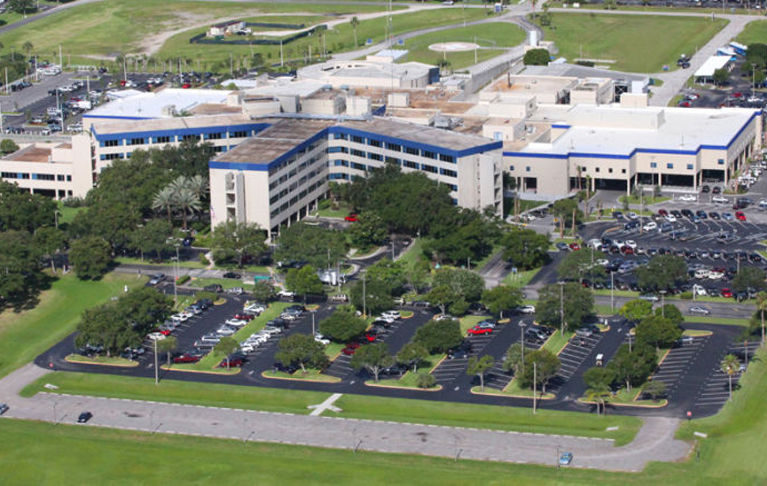
INDIAN RIVER COUNTY — Unable to resolve the differences over amending the present indigent care agreement with Indian River Medical Center, the Hospital District last week unanimously voted to scrap the whole agreement and start from scratch, even though the two sides appear to be close to an interim stopgap reimbursement agreement for the current fiscal year.
And if the Hospital District trustees are still unable to work out a whole new agreement with the medical center over the next 12 months, the District reserves the right to modify the present pact or cancel it altogether and unilaterally impose its own conditions for how it will reimburse the hospital out of tax dollars for indigent care.
For its part, the hospital, through its lead attorney, immediately criticized the district’s decision and questioned whether the district trustees can even legally take such action.
“You have to ask yourself if it makes sense to start over,” said hospital lawyer Bill Stewart. “We’ve had the agreement in place for a long time and there have got to be some good bones in there.”
Stewart further questioned whether Florida law supports the District’s right to modify or terminate the agreement on its own if in 12 months the two sides are still in a stalemate.
Florida Statute 155.40 says that when a Hospital District has a contract that runs more than 12 months to provide revenue to a hospital, it must be able to modify the contract upon 12 months’ notice.
The Indigent Care Agreement runs for 36 months, making the District’s right to modify it – or terminate it – appear to be within the law.
The District hopes that a shorter, simpler agreement can be made acceptable to both sides.
“I don’t see how the current agreement can be a basis for resolution when we still have 20 to 40 areas of contention,” District chairman Tom Spackman said.
A new draft contract had become practically undecipherable with red edits by the District, blue by the hospital and lines drawn through large areas, with multiple paragraphs added.
“I don’t want to speculate on our options and I’m optimistic we can work this out,” said Stewart. “But if, at some point, they said, ‘no more talk,’ I wouldn’t take that very well.”
Meanwhile, the hospital and the District are finally coming to agreement on a portion of the contract that they have carved out and continue to negotiate: the formula for how the District will reimburse the hospital for indigent care.
For fiscal year 2015, the hospital wanted over $7 million for indigent care from the District, plus more than $2 million for its Partners childbirth program, while the District had offered just over $6 million for indigent care and $1 million for Partners.
To help resolve the $2 million difference, the District hired a reimbursement expert to take an in-depth look at hospital finances for indigent care and Partners.
By last Thursday afternoon, with the consultant’s just-released report in hand, hospital and District negotiators said they were “very close” to agreement over reimbursement amounts for the current fiscal year, having whittled their differences down to a $200,000 gap.
The consultant recommended a “nonfederal rate” capped at $6.37 million for fiscal year 2015 for indigent care reimbursement, while Partners funding would be divided into three categories – obstetrics, pediatrics and inpatient services – with funding for each area to be approved or denied separately.
The final reimbursement numbers, it appears, will be close to what the District offered the hospital in October.
District trustee Gene Feinour, who is on the District negotiating team, said that he expects a new reimbursement formula to be approved by both sides in less than a month, and the hospital did not disagree.



